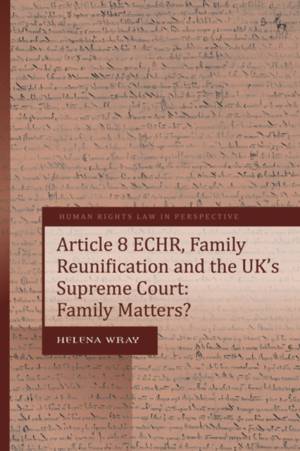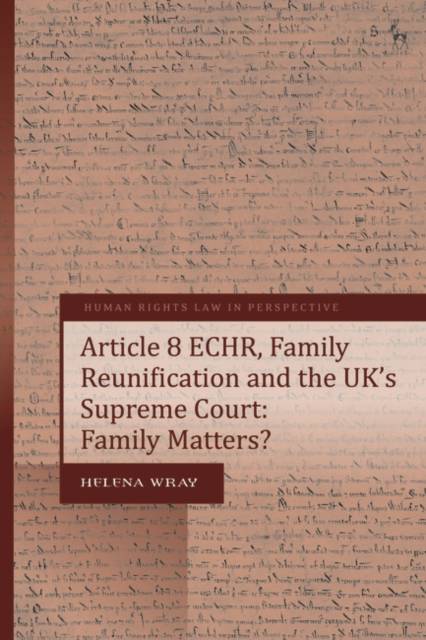
Bedankt voor het vertrouwen het afgelopen jaar! Om jou te bedanken bieden we GRATIS verzending (in België) aan op alles gedurende de hele maand januari.
- Afhalen na 1 uur in een winkel met voorraad
- In januari gratis thuislevering in België
- Ruim aanbod met 7 miljoen producten
Bedankt voor het vertrouwen het afgelopen jaar! Om jou te bedanken bieden we GRATIS verzending (in België) aan op alles gedurende de hele maand januari.
- Afhalen na 1 uur in een winkel met voorraad
- In januari gratis thuislevering in België
- Ruim aanbod met 7 miljoen producten
Zoeken
€ 195,45
+ 390 punten
Omschrijving
This book focuses on a series of judgments by the UK's Supreme Court on the application of the right to respect for family life, contained in article 8 ECHR, to immigration decisions. These judgments have required the government to amend several aspects of its family migration policy and have become the centre of legal and political controversy, raising questions about the judicial function in a modern democracy, the influence on the legal system of European human rights law and the difficulties of controlling immigration in a globalised world. They have drawn judges into new territory and there is evidence that the senior judiciary is itself divided. Meanwhile, attempts by the government to reverse these judgments through rule changes and legislative amendment have added new layers to an already complex legal framework. In so doing, the book explains why the relationship between Article 8 and immigration is so legally and political complicated.
Specificaties
Betrokkenen
- Auteur(s):
- Uitgeverij:
Inhoud
- Aantal bladzijden:
- 272
- Taal:
- Engels
- Reeks:
Eigenschappen
- Productcode (EAN):
- 9781509902576
- Verschijningsdatum:
- 9/02/2023
- Uitvoering:
- Hardcover
- Formaat:
- Genaaid
- Afmetingen:
- 156 mm x 234 mm
- Gewicht:
- 557 g

Alleen bij Standaard Boekhandel
+ 390 punten op je klantenkaart van Standaard Boekhandel
Beoordelingen
We publiceren alleen reviews die voldoen aan de voorwaarden voor reviews. Bekijk onze voorwaarden voor reviews.









